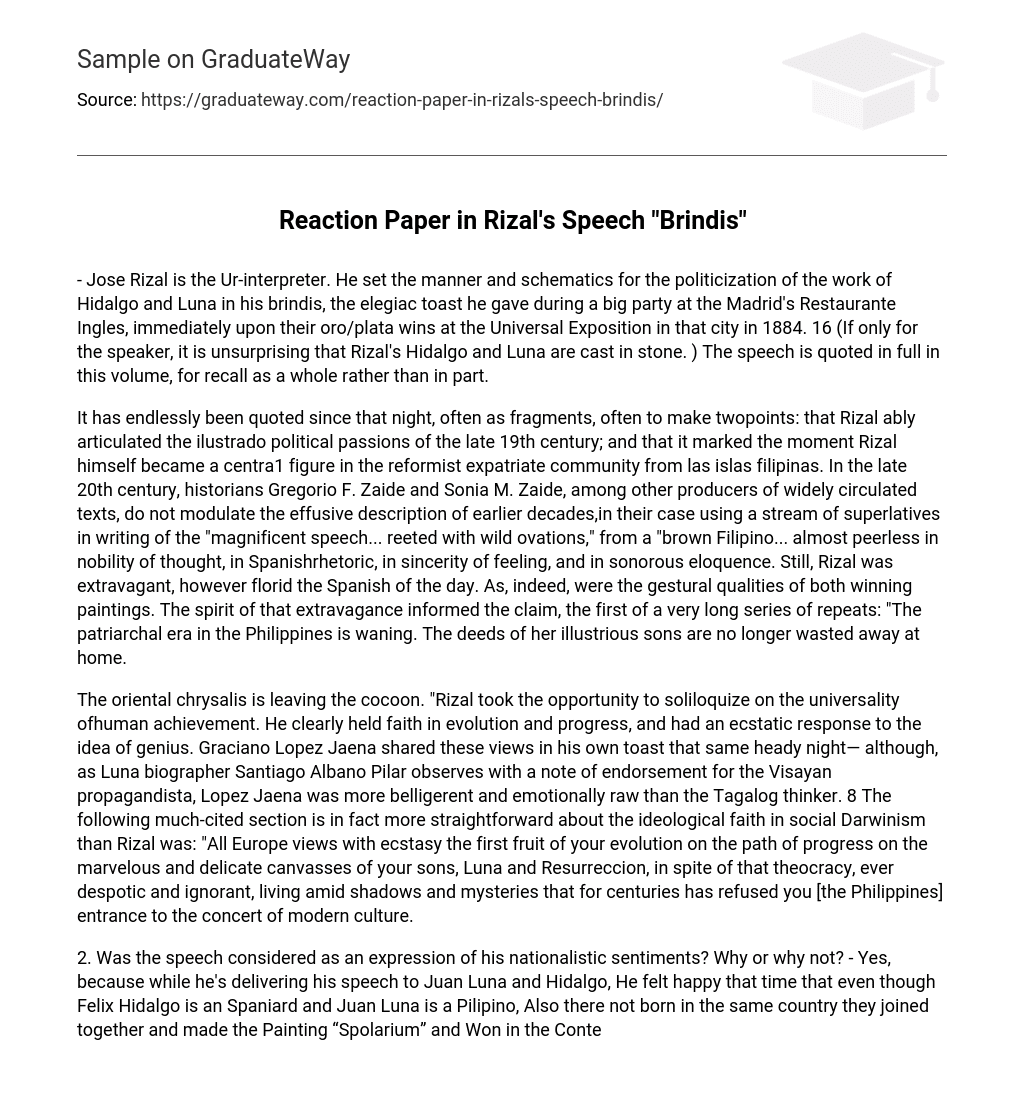– Jose Rizal is the Ur-interpreter. He set the manner and schematics for the politicization of the work of Hidalgo and Luna in his brindis, the elegiac toast he gave during a big party at the Madrid’s Restaurante Ingles, immediately upon their oro/plata wins at the Universal Exposition in that city in 1884. 16 (If only for the speaker, it is unsurprising that Rizal’s Hidalgo and Luna are cast in stone. ) The speech is quoted in full in this volume, for recall as a whole rather than in part.
It has endlessly been quoted since that night, often as fragments, often to make twopoints: that Rizal ably articulated the ilustrado political passions of the late 19th century; and that it marked the moment Rizal himself became a centra1 figure in the reformist expatriate community from las islas filipinas. In the late 20th century, historians Gregorio F. Zaide and Sonia M. Zaide, among other producers of widely circulated texts, do not modulate the effusive description of earlier decades,in their case using a stream of superlatives in writing of the “magnificent speech… reeted with wild ovations,” from a “brown Filipino… almost peerless in nobility of thought, in Spanishrhetoric, in sincerity of feeling, and in sonorous eloquence. Still, Rizal was extravagant, however florid the Spanish of the day. As, indeed, were the gestural qualities of both winning paintings. The spirit of that extravagance informed the claim, the first of a very long series of repeats: “The patriarchal era in the Philippines is waning. The deeds of her illustrious sons are no longer wasted away at home.
The oriental chrysalis is leaving the cocoon. “Rizal took the opportunity to soliloquize on the universality ofhuman achievement. He clearly held faith in evolution and progress, and had an ecstatic response to the idea of genius. Graciano Lopez Jaena shared these views in his own toast that same heady night— although, as Luna biographer Santiago Albano Pilar observes with a note of endorsement for the Visayan propagandista, Lopez Jaena was more belligerent and emotionally raw than the Tagalog thinker. 8 The following much-cited section is in fact more straightforward about the ideological faith in social Darwinism than Rizal was: “All Europe views with ecstasy the first fruit of your evolution on the path of progress on the marvelous and delicate canvasses of your sons, Luna and Resurreccion, in spite of that theocracy, ever despotic and ignorant, living amid shadows and mysteries that for centuries has refused you [the Philippines] entrance to the concert of modern culture.
2. Was the speech considered as an expression of his nationalistic sentiments? Why or why not? – Yes, because while he’s delivering his speech to Juan Luna and Hidalgo, He felt happy that time that even though Felix Hidalgo is an Spaniard and Juan Luna is a Pilipino, Also there not born in the same country they joined together and made the Painting “Spolarium” and Won in the Contest, they also bring honor to both countries Spain and the Philippines.





